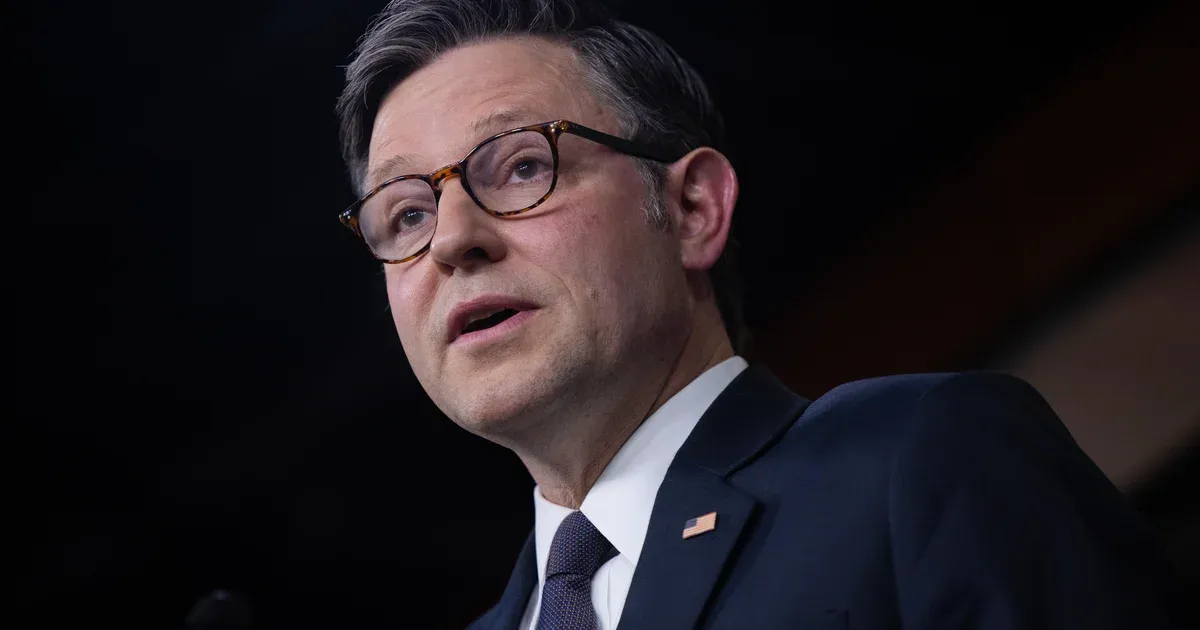GOP Rebel Uprising Risks Knocking Trump’s ‘Big, Beautiful Bill’ Off Track Before Critical Committee Vote
Republicans are navigating a series of disagreements as they prepare for a House Budget Committee meeting to move forward with President Donald Trump's reconciliation bill.

President Donald Trump’s much-promoted “big, beautiful bill” is facing significant obstacles in Congress, with its future uncertain as of Thursday afternoon. The House Budget Committee is preparing for a critical meeting to decide whether the sweeping legislation, encompassing tax reform, border security, immigration, defense, energy policy, and an increase in the debt limit, can proceed toward a full House vote.
At least three Republicans serving on the committee—Reps. Andrew Clyde (R-Ga.), Ralph Norman (R-S.C.), and Chip Roy (R-Texas)—have publicly stated they will oppose advancing the bill in its current form. With one Republican expected to be absent from the committee vote, GOP leadership can afford only a single "no" to ensure passage.
Rep. Roy, vocalizing his concerns both online and to the press, criticized the bill Thursday: "Right now, the House proposal fails to meet the moment. It does not meaningfully change spending… plus many of the decent provisions and cuts don’t begin until 2029 and beyond. That is swamp accounting to dodge real savings."
Other committee members expressed hesitations as well. Rep. Josh Brecheen (R-Okla.) requested a delay of Friday morning's meeting, and Rep. Glenn Grothman (R-Wis.)—rarely known for opposing House GOP leaders—questioned the sincerity of the legislation and kept his voting intentions private.
Among conservatives’ chief complaints:
- Medicaid work requirement reforms and repeals of green energy subsidies under the Inflation Reduction Act do not take effect until 2029.
- Provisions aimed at curbing perceived abuses of the Medicaid system lack immediacy.
- Delays in phasing out green energy tax credits have raised skepticism.
Rep. Norman commented after Thursday’s meeting, “I questioned the timing on work requirements, I questioned the IRS phase-outs. I didn't get an answer on that. My point is, we need to have answers before it hits the floor.”
Rep. Clyde confirmed he’s a definitive "NO" on advancing the bill as it stands, though he signaled ongoing negotiations to improve the package and remained hopeful for quick changes to fulfill Trump’s legislative priorities.
A further sticking point involves the state and local tax (SALT) deduction cap. The bill proposes raising the deduction limit from $10,000 to $30,000, but this figure is considered insufficient by moderate Republicans from high cost-of-living districts—a voting bloc large enough to imperil the bill’s passage.
Fiscal conservatives argue deeper spending cuts must accompany increases in the SALT cap. Meanwhile, moderates like Rep. Mike Lawler (R-N.Y.) contend any cap is a net savings, since the alternative is a return to unlimited deductions if the Trump-era tax cuts expire.
Some members, including Rep. Nick LaLota (R-N.Y.), have shown willingness to negotiate, suggesting they could accept earlier Medicaid work requirement deadlines in exchange for higher SALT caps.
Despite the turbulence, Speaker Mike Johnson (R-La.) expressed confidence that the bill would advance on schedule, aiming for House passage before Memorial Day. After a conference-wide meeting Thursday, Johnson stated, “I’m talking to everybody and I think we're gonna get this thing done on the schedule that we proposed.”
Both House leadership and committee chairs expect the process to continue, although Budget Committee Chairman Jodey Arrington (R-Texas) acknowledged the votes against the bill may be "potentially enough to delay it."
The contentious legislation is being pushed through budget reconciliation, a maneuver allowing the majority party to bypass the Senate filibuster and enact broad policy changes with a simple majority. The bill has been pieced together by eleven House committees, with the consolidated package set for Budget Committee review Friday morning.
Should the bill clear the House Budget Committee, it will proceed to the House Rules Committee before a full House vote. From there, it would head to the Senate, where amendments are likely, requiring further negotiation and eventual alignment before potentially reaching President Trump’s desk for signature.
